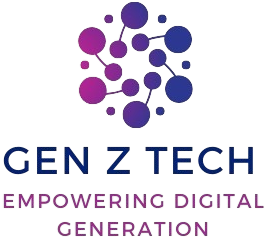Quantum Computing: Revolutionizing Data Processing; Quantum computing is no longer just a theoretical concept; it is rapidly evolving into a transformative technology poised to revolutionize the way data is processed. As we enter an era where traditional computing struggles to keep up with the growing complexity of problems, quantum computing offers a new frontier of possibilities. This article explores how quantum computing is set to change data processing, its potential applications, and the challenges that lie ahead.
Understanding Quantum Computing
To grasp the significance of quantum computing, it’s essential to understand how it differs from classical computing. Traditional computers use bits as the smallest unit of data, which can exist in one of two states: 0 or 1. These bits form the basis of all computations in classical systems.
Quantum computers, however, operate on quantum https://genztech.online/ bits or qubits. Unlike bits, qubits can exist in multiple states simultaneously thanks to the principles of quantum mechanics, specifically superposition and entanglement. Superposition allows qubits to be in a state of 0, 1, or both simultaneously, while entanglement links qubits in such a way that the state of one can instantly influence the state of another, regardless of distance.

These properties enable quantum computers to process vast amounts of data simultaneously, making them exponentially more powerful than classical computers for specific types of problems.
Revolutionizing Data Processing
The ability of quantum computers to handle complex computations at unprecedented speeds has significant implications for data processing. Traditional computers, while powerful, are reaching their limits in solving certain problems, especially those involving large datasets or requiring massive computational power.
Quantum computing can revolutionize data processing in several key ways:
1. Solving Complex Problems
One of the most significant advantages of quantum computing is its potential to solve complex problems that are currently intractable for classical computers. For example, optimizing large-scale systems, such as supply chains or financial portfolios, involves numerous variables and constraints. Quantum algorithms can process these variables simultaneously, providing solutions that would take classical computers years to compute.
2. Advancing Cryptography
Quantum computing also has the potential to transform the field of cryptography. Current encryption methods rely on the difficulty of factoring large numbers, a task that classical computers find time-consuming. However, quantum computers could break these encryptions within seconds, posing a challenge to current cybersecurity protocols. On the flip side, quantum cryptography could offer new, more secure encryption methods based on the principles of quantum mechanics.
3. Accelerating Machine Learning
Machine learning, a subset of artificial intelligence, involves processing vast amounts of data to identify patterns and make predictions. Quantum computing can significantly accelerate this process by performing parallel computations on multiple data points simultaneously. This capability could lead to more efficient training of machine learning models, enabling faster development of AI applications.
4. Enhancing Drug Discovery
In the field of healthcare, quantum computing could revolutionize drug discovery. The process of discovering new drugs involves simulating molecular interactions, a task that requires significant computational power. Quantum computers can model these interactions at the quantum level, potentially leading to faster development of new treatments and personalized medicine.

Challenges and the Road Ahead
While quantum computing holds immense potential, it is still in its infancy, and several challenges need to be addressed before it can be fully realized.
1. Technical Limitations
One of the primary challenges is the technical difficulty of building and maintaining stable quantum computers. Qubits are extremely sensitive to their environment, and maintaining their quantum state requires precise conditions, including extremely low temperatures. Researchers are actively working on developing more stable qubits and error correction methods to overcome these limitations.
2. Scalability
Scaling quantum computers to a level where they can outperform classical computers on practical problems is another significant challenge. Current quantum computers, known as noisy intermediate-scale quantum (NISQ) devices, are still limited in the number of qubits they can handle. Achieving large-scale quantum computing will require advances in qubit technology and error correction.
3. Developing Quantum Algorithms
Developing quantum algorithms that can take full advantage of quantum computing’s potential is an ongoing area of research. While some algorithms, like Shor’s algorithm for factoring large numbers, have been developed, much work remains in creating algorithms that can solve a broader range of problems.

Conclusion
Quantum computing represents a paradigm shift in data processing, offering the potential to solve problems that are currently beyond the reach of classical computers. From optimizing complex systems to revolutionizing cryptography and accelerating drug discovery, the impact of quantum computing could be profound. However, significant challenges remain, particularly in terms of technical limitations, scalability, and algorithm development.
As research and development in quantum computing continue to advance, we may soon witness a new era of computing power, one that could reshape industries and revolutionize how we process and analyze data. The road ahead is challenging, but the potential rewards are immense, making quantum computing one of the most exciting and transformative technologies of our time.

